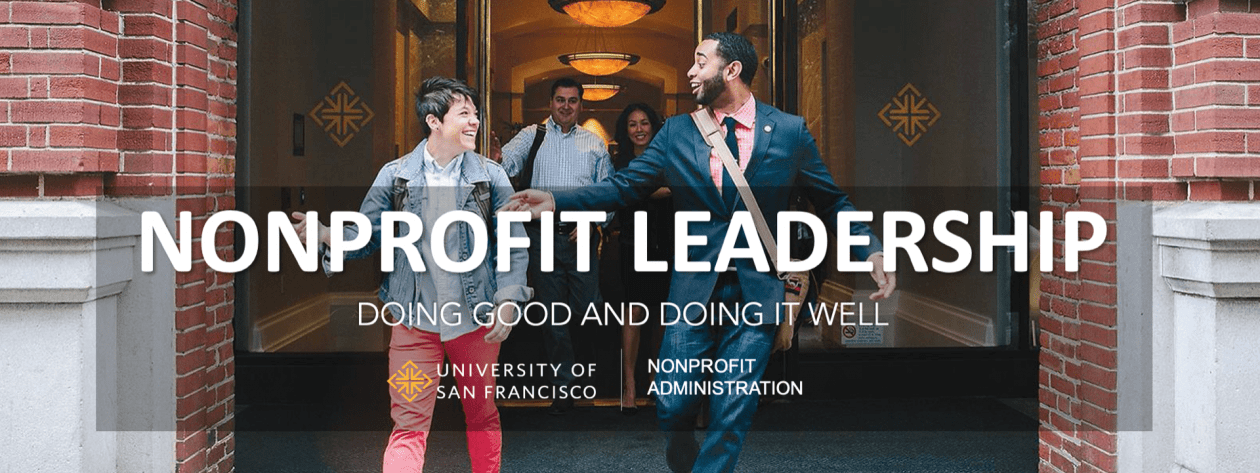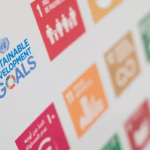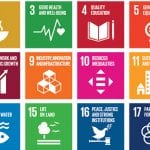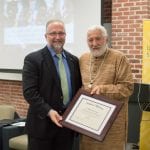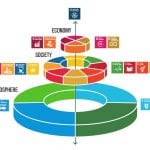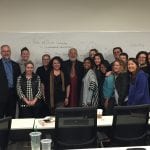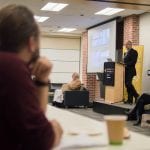
Nonprofit Sustainability and Sustainability Reporting
The University of San Francisco’s Master of Nonprofit Administration in the School of Management have the option to take part in a Professional Training on Sustainability Reporting Capacity. The MNA program integrates the concepts of nonprofit sustainability and a sustainability mindset (Jean Bell, MNA ’01) with hybrid business elements for CSR reporting and certifications including GRI, ISO, B-Corp, and Fair Trade among others. The training program is part of the Education for the Sustainable Development plans of the University and the commitment of the School for the Higher Education for Sustainability Initiative (HESI) and the Principles of Responsible Management Education (PRME) for the implementation of capacity for the 2030 Agenda and the Sustainable Development Goals (SDGs). This graduate level program integrates perspectives and practices for Impact Investing and extend s the SDG trainings provided in partnership with the United Nations Association San Francisco for Young Professionals (YPSDG). What is significant and exciting about these trainings is the integration of sustainability paradigms, CSR reporting skills, impact investing and social enterprise solutions for the future of nonprofit management education. Students have expressed keen interest in pursuing CSR careers and Chief Sustainability Officer (CSO) positions.
Young Professionals for Sustainable Development

Since 2018, the Master of Nonprofit Administration (MNA) has been collaborating with the United Nations Association San Francisco (UNA-USA-SF) to design and deliver specialized certification trainings on theUnited Nations 2030 Agenda and the Sustainable Development Goals (SDGs). The program is called Young Professionals for Sustainable Development Goals (YPSDG) and it is directed by Fyodor Ovchinnikov from the Evolutionary Leadership Institute and coordinated by Mary Steiner (UNA) and Dr. Marco Tavanti (MNA). It provides selected young professionals the essential mindsets, overview of the SDGs, and skills for World Cafe and Collective Narrative methods. It also gives young professionals opportunities to think about their careers for good thanks to the mentorship of more ‘senior’ professionals.

Nonprofit Sustainability
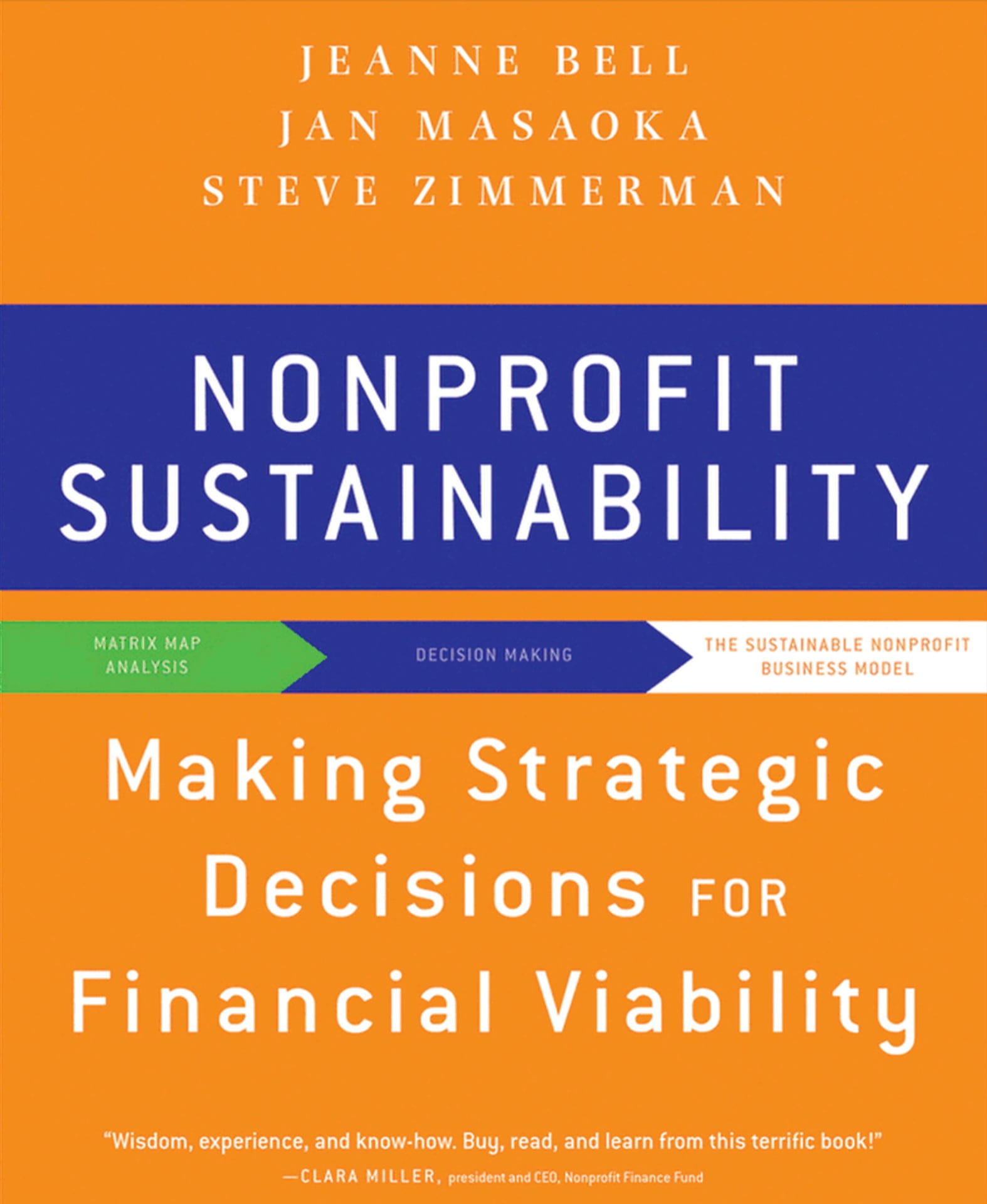
Sustainability is a hot topic in nonprofit administration. Most of the literature and practitioner’s interpretation of nonprofit sustainability revolves around ‘financial’ sustainability. One of our well-known MNA alumni, Jeanne Bell, has written some popular books on Nonprofit Sustainability to develop executive and organizational sustainability mindsets while making strategic decisions for financial viability. Indeed and as we often say in the nonprofit sector, without money, there is no mission.
SDGs and Agenda 2030

But the work that nonprofits (NPOs) and nongovernmental organizations (NGOs) are doing in the field of sustainability exceeds these concerns. They share a global concerns for a sustainable, equitable, healthy, peaceful, just and collaborative future for all. Since 2015, these preoccupations and promises have been incorporated in the Sustainable Development Goals (SDGs) and the Agenda 2030. The MNA Program at University of San Francisco has placed its values into action by strategically integrating sustainability education in its nonprofit management and leadership program.
Integrated Ps for Sustainability

The integrated sustainability competencies and mindsets reflect the principles and practices of the SDGs and the Triple Bottom Line for shared value creation. The sustainability education of the MNA program goes beyond profit and financial concerns and delves into the promotion of social and community values (people) , for green solutions and nature preservations (planet), for green business solutions and social / environmental performance (prosperity). We also explore the human rights approaches and rule of law / policy applications as in the SDG 16 (peace) and for the promotion of multi-sector and cross-sector partnerships and collaborations as in SDG 17 (partnerships). Building on our Jesuit values and social justice tradition embedded in catholic social thinking (CST) we also emphasize the principles of sustainability in Laudato Si along the principles of subsidiarity, solidarity and synchronicity (principles). Finally, because of our emphasis on businesses and organizational practices as in the School of Management we also reflect on practical solutions, standardized sustainability impact reporting and feasible innovations (practices).
Dr. Alfredo Sfeir Younis
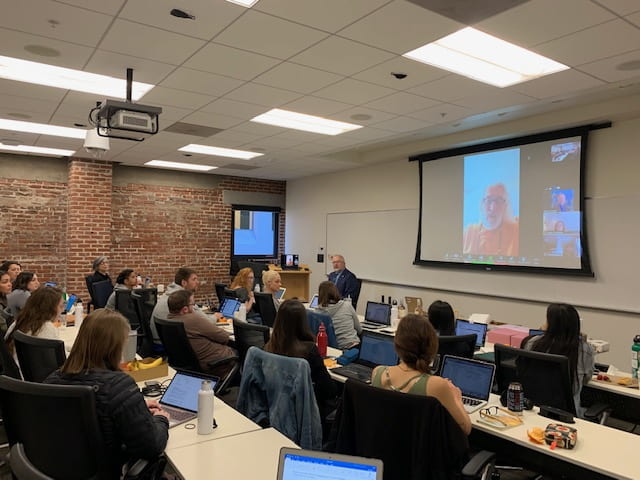
The MNA Program began its sustainability integration journey in October 2015 with the SDG Symposium reflecting on the role of governments (public sector), businesses (private sector) and civil society (nonprofit sector). We were honored by the presence of Dr. Alfredo Sfeir Younis, a well-known sustainability leader, President of Zambuling Institute for Social Transformation and Former Director of the World Bank Office in Geneva. As the first expert economist on the environment hired by the World Bank in 1976 he contributed to numerous sustainability milestones at the United Nations.Through a series of video expert interviews on various subjects, Dr. Alfredo Sfeir Younis, has collaborated with Dr. Marco Tavanti to advance the student’s knowledge on international and sustainable development topics.
MNA Sustainability Programs
Throughout these years, the MNA has invested in sustainability education by integrating NPA 661 in the nonprofit curriculum and expending the education and training for the SDGs, sustainability reporting in the GRI, and the the role that nonprofit and academic institutions like University of San Francisco have to promote a sustainable future. We are grateful to many of our partners and collaborators like the Sustainable Capacity Institute (SCII), the Centre for Sustainability Excellence (CSE) and the Principles of Responsible Management Education (PRME), Higher Education for Sustainability Initiative (HESI), the University Office of Sustainability (USFCA) for their support and contributions to the sustainability agenda of the MNA program.
MNA changes the world – sustainably and for the better
In the NPA 661: Sustainable Development Leadership – Sustainability Reporting Capacity graduate course, students provides comparative analyses of Global Reporting Initiatives (GRI-CSR) reporting and produce concrete feasible projects for the University of San Francisco to increase its sustainability performance in its curriculum, operations, research, and engagement.
